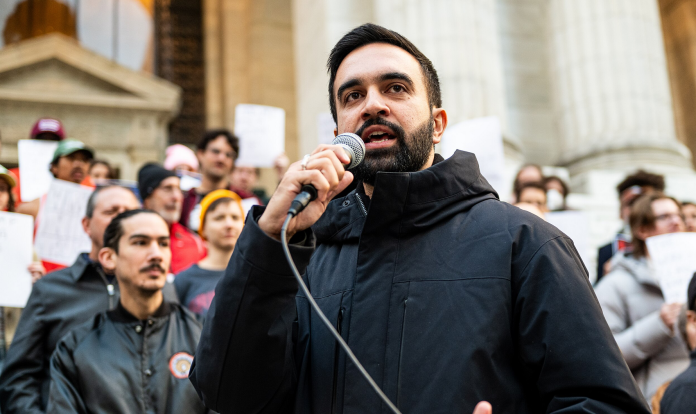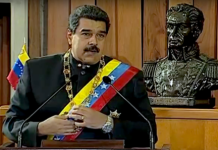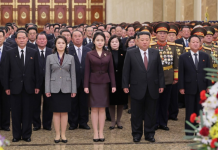In a stunning political upset, New York Assemblyman Zohran Mamdani defeated former Gov. Andrew Cuomo in the city’s Democratic mayoral primary Tuesday, marking a seismic shift in the city’s political landscape and potentially signaling a new direction for the national Democratic Party.
Mamdani, 33, a democratic socialist representing Queens’ 36th Assembly District, declared victory after securing about 43.5% of first-choice votes, leading Cuomo by seven points. Final results from the ranked-choice voting process are expected by July 1, but Cuomo conceded late Tuesday, cementing Mamdani as the party’s presumptive nominee.
A first-generation Ugandan American and son of Columbia professor Mahmood Mamdani and filmmaker Mira Nair, Mamdani ran on a platform focused on economic justice, housing, transit, and childcare. His proposals include fare-free public buses, a citywide rent freeze, universal childcare, and higher taxes on corporations to fund social services.
“This is about building a New York that works for everyone—not just the wealthy,” Mamdani said during a victory speech in Queens. “We proved that with people power, you can take on even the most entrenched institutions.”
Grassroots Over Goliath
Mamdani’s grassroots campaign stood in stark contrast to Cuomo’s establishment-backed run, which enjoyed support from national party figures and major donors. Mamdani relied heavily on volunteers and small-dollar donations, building a coalition of progressives, young voters and communities of color.
The campaign mobilized more than 29,000 volunteers citywide, canvassing neighborhoods with a message focused on affordability and justice. His success echoed the insurgent campaigns of Alexandria Ocasio-Cortez and Bernie Sanders, both of whom endorsed him.
The win also comes as a rebuke to the Democratic Party’s establishment wing. Mamdani, who was endorsed by progressive leaders such as Rep. Jamaal Bowman and State Sen. Gustavo Rivera, made defeating Cuomo—a symbol of the party’s old guard—a central theme.
“Cuomo ran a campaign backed by billionaires. We ran one backed by our neighbors,” Mamdani said in a June interview.
Rising Star and Potential First
If elected in November, Mamdani would become New York’s first Muslim mayor and the first democratic socialist to hold the position in modern city history.
His campaign drew sharp criticism from opponents, particularly for his positions on Israel and Gaza. He has been accused by some critics of antisemitism, a charge he denies. Mamdani maintains that his support for Palestinian rights stems from a belief in international human rights.
Despite these attacks, he gained ground with younger, more diverse segments of the Democratic electorate—particularly voters under 45 and residents in Queens, Brooklyn, and the Bronx.
“We reached people who had never voted before, who had given up on politics,” Mamdani said during a Wednesday appearance on MSNBC.
A Warning Shot to the Democratic Establishment
National Democrats have been divided in their reactions. Some view Mamdani’s win as energizing for a party struggling to connect with younger voters. Others warn that his progressive platform could alienate moderates and hurt Democrats in swing districts.
“This is a generational and ideological rift,” said Democratic strategist Maya Contreras. “The question is whether the party can bridge it—or whether it splits further apart.”
Mamdani’s victory arrives less than a year after Democrats lost ground in key House races in New York. Party leaders are still debating whether to double down on centrist messaging or embrace progressive energy.
House Minority Leader Hakeem Jeffries, whose district borders Mamdani’s, congratulated him cautiously, emphasizing “the need for unity in November.”
GOP Seizes on Opportunity
Republicans have seized on Mamdani’s win, branding him a radical and comparing his platform to “communism.” Former President Donald Trump issued a statement calling Mamdani a “dangerous extremist,” while conservative pundits warned of a Democratic Party “taken hostage by socialists.”
Billionaire hedge fund manager Bill Ackman announced plans to fund any credible challenger to Mamdani in the general election, pledging “millions” to prevent his rise.
Meanwhile, Mayor Eric Adams, a Democrat turned independent, has relaunched his campaign, painting Mamdani as “out of touch” with working-class voters. Cuomo, though having conceded, retains ballot access and has not ruled out an independent run.
A New Political Map
Mamdani’s path to victory offers lessons for future candidates: he won support from immigrant communities, disaffected youth, and even some working-class voters who previously backed Trump. His messaging emphasized shared struggles and practical solutions, rather than ideological labels.
Political analysts say his win was enabled by ranked-choice voting, which allowed Mamdani to benefit from second-choice support among voters who backed other progressive candidates.
“It’s a new map for electoral success,” said Errol Louis, a political analyst at NY1. “And the establishment is still figuring it out.”
Looking Ahead
As Mamdani prepares for the general election in November, the Democratic Party faces a broader reckoning.
Do they embrace Mamdani’s bold agenda and risk backlash from centrists—or double down on moderation and risk losing younger, more diverse voters?
For now, Mamdani is focused on the city.
“Winning the primary is not the end,” he told supporters Wednesday. “It’s the beginning of building the New York we all deserve.”





